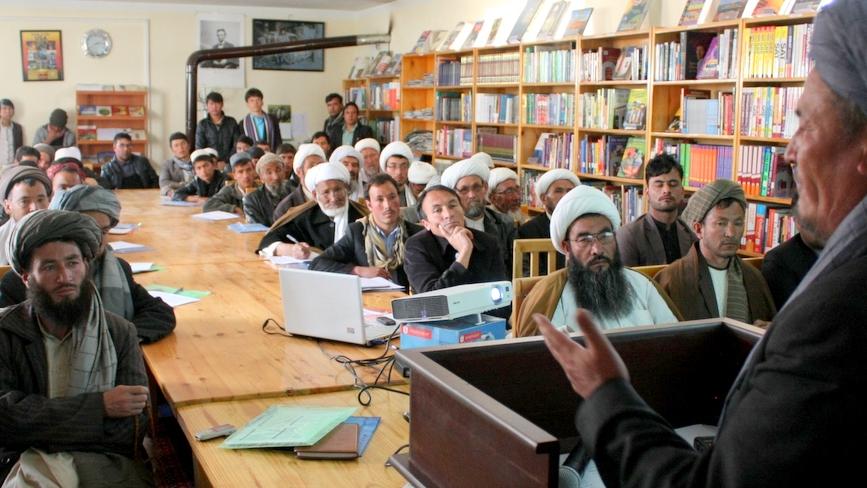BAMYAN - Raising community awareness about the dangers faced by migrants trying to reach Europe, in which more than 620 people have died this year alone, was the aim of an international organization event involving religious leaders in central Bamyan province.
The International Organization for Migration (IOM) brought together more than 50 religious leaders, from mosques across the provincial capital of Bamyan, to inform them about the hazards Afghans face when travelling illegally to Europe. Similar programmes are being held in other provinces.
“As humanitarian workers, we are concerned about the threat to human lives and human loss during these journeys,” said Mir Agha Nasrat, Head of IOM’s Bamyan office.
Bamyan participants heard about the dangers Afghan migrants face, including abuse from human traffickers and the risk of death during the often perilous boat journey across the Mediterranean.
According to IOM figures, Afghans are second only to Syrians among the number of people arriving in Greece by sea. During 2015, 205,858 Afghans arrived in Greece by boat, while in the first two months of this year, there were 31,550 Afghan arrivals.
The journey carries with it very real dangers: In the first three months of 2016 alone, IOM estimated that 620 migrants died crossing the Mediterranean to Europe, including 366 deaths on the eastern Mediterranean route to Greece popular among Afghans.
“Travelling illegally and putting oneself in life threatening situations is like committing suicide and suicide is forbidden in Islam,” said Haji Assadi, a member of the provincial council and a prominent religious scholar in Bamyan.
Mr. Assadi said that the country is facing a brain drain: “At this time of crisis the country needs more energetic and educated people.”
According to the Department of Refugees and Repatriation in Bamyan, most people migrating from Bamyan province represent youth and families: “Insecurity, joblessness and economic crisis in Afghanistan are the major causes of illegal migration,” said Azizullah Aminyar, head of the Department.
Mr. Aminyar said an estimated 10 per cent of Afghanistan migrants are from Bamyan province and that the number may increase this summer.
Mr. Nasrat said that religious leaders are influential members of the community, who through their engagement with the wider population – such as by preaching at mosques – will help to raise awareness about the dangerous consequences of irregular migration.
IOM is part of the UN Country Team in Afghanistan. Its mission in Afghanistan was established in 1992 and it one of the largest IOM missions worldwide.
IOM is committed to the principle that humane and orderly migration benefits migrants and society. The organization currently implements a range of humanitarian assistance, community stabilization and migration management initiatives in Afghanistan, in cooperation with government and humanitarian partners as well as local communities.






